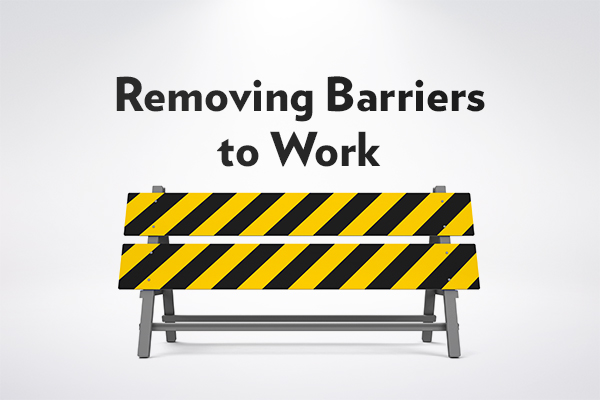Media

Pa. Senate Passes Legislation Removing Employment Barriers
Individuals like Ericka Miller and Amanda Spillane are one step closer to having a fair opportunity to pursue success and live their American dream. On Thursday, the state Senate passed legislation that removes the licensing barriers unjustly restricting Ericka and Amanda from achieving the careers they desire.
Ericka had a dream of opening a salon with her daughter. Amanda had a job waiting for her at a local salon. But both women have faced roadblocks because they are among the 3 million Pennsylvanians with criminal records, and because our state’s laws indiscriminately deny a cosmetology license to individuals with records as lacking “good moral character.” All objectivity, consideration of individual circumstances, and evidence of how an individual has grown are ignored.
In these two cases, both women have served their time, made honest attempts to become productive citizens, and spent thousands of dollars on earning professional qualifications. With Senate Bill 637, Sens. John DiSanto (Dauphin and Perry Counties) and Judy Schwank (Berks County) are aiming to ensure Pennsylvania’s various occupational licensing laws take such important factors into account.
Our outdated occupational regulations are the most burdensome in the nation. Many don’t effectively promote safety and stand in the way of many Pennsylvanian’s success—particularly among vulnerable populations who already face steep roadblocks.[1]
To address this, SB 637 (like it’s companion House Bill 1477 sponsored by Reps. Sheryl Delozier and Jordan Harris):
- Creates a single, consistent standard for occupational licensing boards when considering applicants with criminal records.
- Limits the 29 licensing boards and commissions to considering only convictions directly related to the occupation.
- Removes current language in the licensing law allowing a board to reject applications based upon imprecise considerations such as “good moral character” or crimes unrelated to the occupation.
- Requires licensing boards to consider factors such as the nature of the offense, an applicant's rehabilitation record, and time elapsed since a crime.
Employment is the best path towards self-sufficiency. This is especially true for individuals with criminal backgrounds for whom employment is a key deterrent to reoffending.
State government should help Pennsylvanians in the most precarious positions, not make it harder to succeed and more likely to return to crime. SB 637 ensures criminal convictions cannot automatically prevent someone from obtaining an occupational license—and the House now has an opportunity to also pass this reform to strengthen our economy and public safety.
[1] Institute for Justice, “License to Work, Second Addition,” https://ij.org/report/license-work-2/.